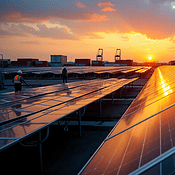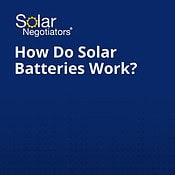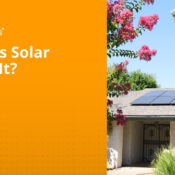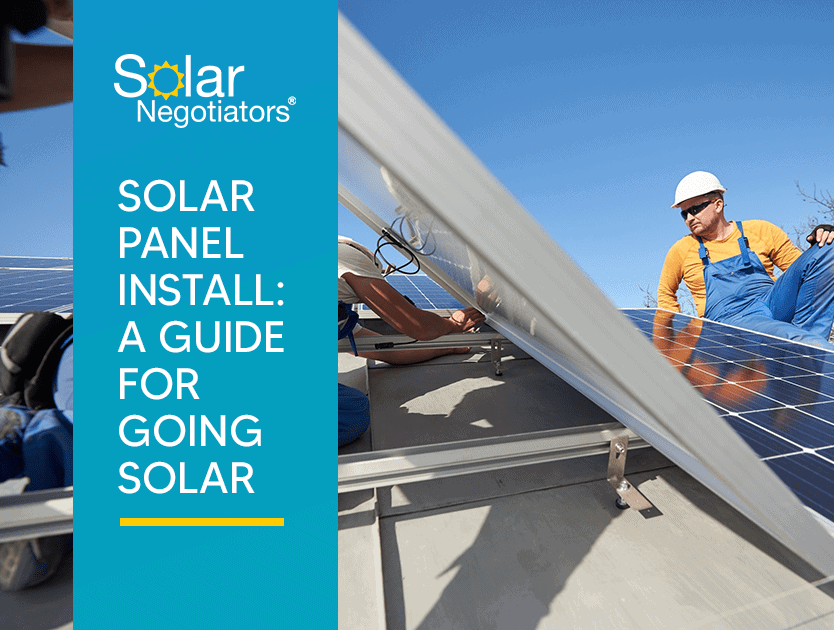
Solar Panel Installation | Solar Negotiators
Are you looking to learn more about solar power? If you’re interested in investing in solar panels, this guide will provide you with important information about solar panel installation with Solar Negotiators. This article will cover topics like how solar power works and even how many panels your home may need. In this guide, we’ll go into what you should know before getting a quote and answer any pressing questions you have.
[Download our free Solar Buyer’s Guide e-book to kick start your solar research.]

Understanding Solar Power
Solar power has become a primary renewable energy source and will take over in the future. We see the world making the shift because solar power is a clean, inexpensive, green power resource. It is able to be harnessed in nearly every corner of the world because sunlight is an abundant source of power. Solar cells are the primary building block for a solar panel system. Understanding more about solar power can help you decide if investing in solar is the right move for you and your family.
How Do Solar Panels Work for Your Home?
For most homes, going solar means adding rooftop solar panels. These generate electricity from the sun and help reduce your monthly electric bill. Solar panels turn sunlight into the energy used to power your home after hitting the solar panels. The sunlight is captured within photovoltaic cells and transported to an inverter, which converts direct current (DC) electricity to use alternating (AC) electricity. Because solar panels rely on sunlight, it’s important to place your solar panels in the right location where they can create the most solar power during the day. They allow homeowners to save on electricity costs and reduce their carbon output, helping to create a cleaner environment.
How Much Does Solar Panel Installation Cost?
While solar panels are a large investment, it’s considered worth it, given the savings and benefits from channeling the sun to power your home. On average, installing solar panels on your home can cost anywhere from $15,000 to $40,000. This price will depend on various factors like the system size and the type of solar panels you have installed on your home. Taking care of your solar panels is important to ensure your energy production remains high. After your solar is installed on your roof, you will need preventative maintenance like panel cleanings and visual inspections to ensure your system is working properly.
Financing and Incentives for Solar
Going solar in California is more affordable than ever, for a couple different reasons:
- The Federal Solar Investment Tax Credit (ITC) allows qualifying homeowners to get back 30% (installed 2021 and on) of what they paid toward the cost of solar installation.
- Interest rates on home improvement loans are at record lows and most options offer no-money down.
These factors combined can make paying for solar easy and affordable for almost every homeowner. To take full advantage of the energy savings solar has to offer, we recommend that all our clients choose to finance or pay cash for their solar system. This is because those who opt for a lease or PPA are not eligible to redeem the solar tax credit.
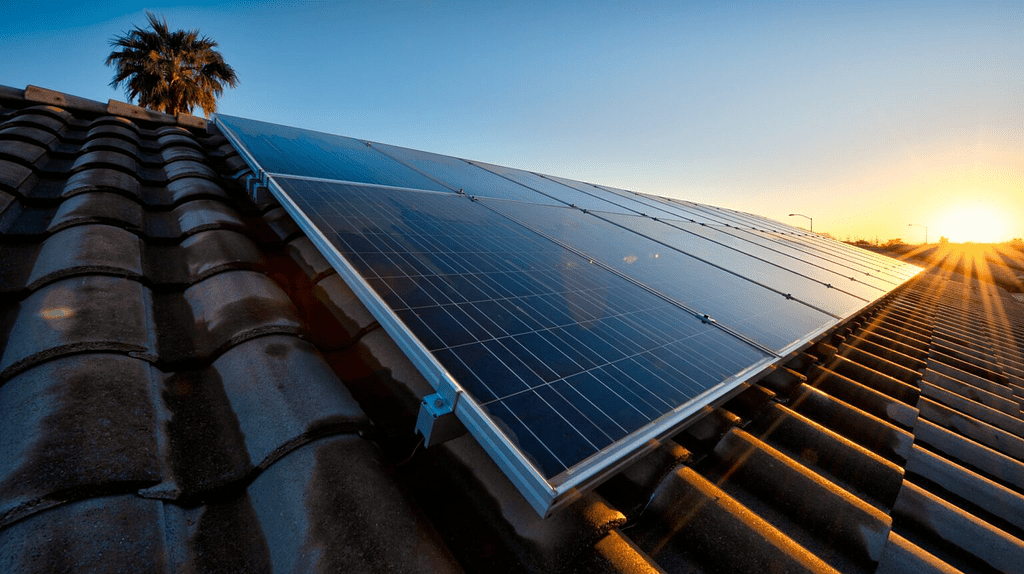
Estimate How Many Solar Panels Your Home Needs
Even though you may have a number of panels in mind based on your home’s size–it is important you wait to speak with a consultant to get a final quote. There are a lot of variables that come into play when sizing your system. These include energy usage, panel type, system orientation, and available sunlight. Your solar consultant will calculate the exact solar energy production needed on an annual basis to offset your current usage. However, designing a system that will produce the right amount of annual electricity is just as important.
You can determine how many solar panels you need by looking at three main factors:
- Annual electricity usage
- Solar Panel Wattage
- Production Ratio
Ready for some solar science? Energy usage is measured in kilowatt-hours (kWh). To figure out how much energy you use, look at your past utility bills. Once you have that number, you can plug it into the equation below. For this example, we are going with the average annual consumption for U.S. residential utilities, which is 10,715 kWh. (U.S. Energy Information Administration, 2021)
Next, you should find out the solar panel’s power rating. Panel wattage is the electricity output of a specific solar panel under ideal conditions. Wattage is measured in watts (W), and most solar panels fall between 250 – 400 watts of power. For example purposes, we will use 340 as an average panel in these calculations. Lastly, we need the solar panel system’s production ratio. A productivity ratio is a system’s estimated energy output over time (measured in kWh) compared to the actual system size. To calculate the production ratio, divide the energy output by the system’s total wattage. In the US, it falls between 1.3 and 1.6. Now we have all three of the main factors, and the formula should look like this:
Number of panels = system size / production / panel wattage
Number of panels = 10,715kW / 1.3 or 1.6 / 340W
This gives us between 20 and 24 panels in a solar array. So depending on the one we use, meaning 20 panels at 340W each result in a total system size of about 6.8kW.
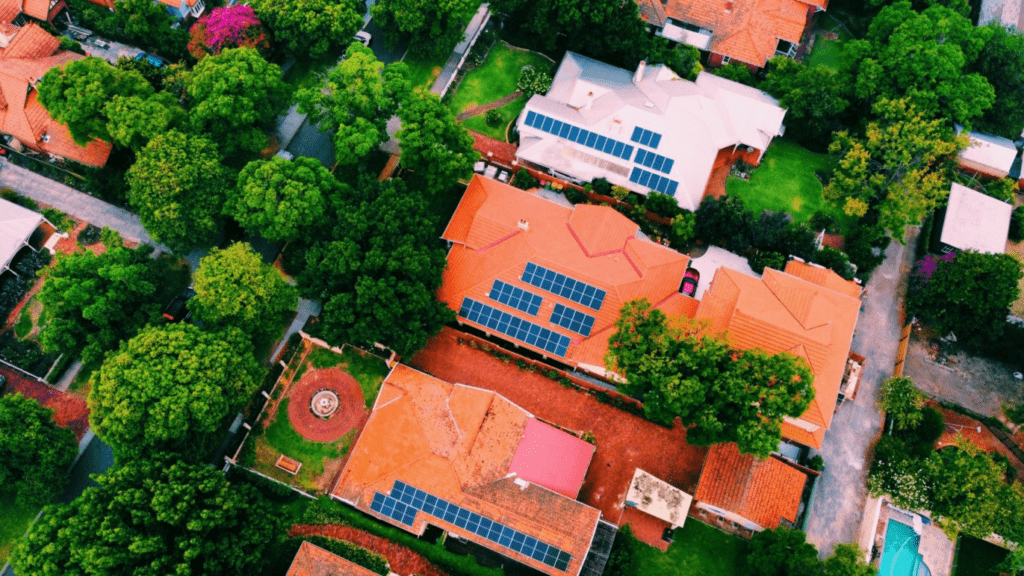
Pros & Con of Solar Panel Installation
Pros of Solar Panels
- Reduces or eliminate electric bills
- Reduce your carbon footprint
- Improve your home value
- Become energy independent from the grid
- Earn tax credits and rebates.
Cons of Solar Panels
- Solar panels are a large investment
- Long payback period
- Weather dependence is critical
There are many advantages and disadvantages of solar power. But as you can see, the benefits of going solar heavily outweigh the disadvantages. We know that going solar can be expensive, but the investment is worth it for most homeowners with eligible properties. Solar Negotiators can help you receive all of the benefits of going solar and help you find suitable options to finance your new solar system.
Can I Install Solar Panels Myself?
As solar panels become more popular, many homeowners are asking themselves if they can install their solar panels themselves. They consider this option as a way to help save on installation costs. It is important to keep in mind that although performing the labor yourself will save you thousands, (unless you are a professional electrician) you risk not properly installing them. This can lead to performance issues with your solar panels, and possibly cause permanent damage to your home. In addition, you will still be responsible for the cost and procurement of all of the solar equipment needed for installation.
Professionals will customize your house design to meet your energy needs. Installing solar panels yourself can be less effective than something custom designed specifically for your house. This is because solar sales professionals take into account things like how much shade your home gets and where the sun hits the house. Therefore, properly installed solar equipment can help save you more money on your electricity bills.
It’s worth noting that many of the solar panels that people use when installing themselves are designed to be grid independent. These are off-grid multi-purpose panels used for powering things like mobile homes or tiny houses. If you are looking to install solar panels on your home or business, you’ll likely need specialized training in electrical work. If you want to power your home with solar panels, it’s best to trust a solar expert like Solar Negotiators.
A professionally installed solar system is likely the best option if you want to power a full-size home. Keep in mind that solar panels will also require regular maintenance and risk needing professional repair services down the road; you will likely be spending more money to replace or fix the panels you installed yourself. When done professionally, solar installation work will be backed by a contractor’s workmanship warranty to cover any future repair costs. If you rely less on the grid and save on energy costs, it’s best to consider a professional installation. Going this route may cost more upfront, but the benefits will help you in the long run.
How Much Will Solar Panels Save Me
As mentioned in this guide, solar panels will save you money and bring a return on your investment over time. Homeowners go solar to reduce the cost of monthly electric and utility bills. If you’re wondering “how much money will it save me?”, that all depends on how much energy your system produces. Typically, a residential solar setup produces anywhere from 170 to 350 watts every hour, depending on the region and weather conditions. The more you produce, the more you can save with your solar panels.
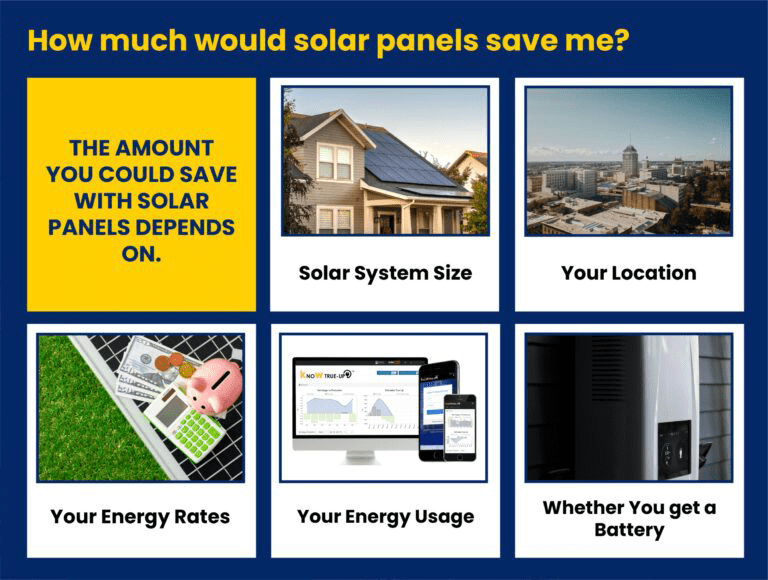
Time To Go Solar
If you’re interested in going solar, Solar Negotiators is the way to go! Following our solar installation is our lifetime monitoring and maintenance service to ensure that your solar panels system works efficiently year round. We are truly your lifetime energy partners. Make a difference today and get a quote!

Recent Posts
Solar Tariffs – Are They Here To Stay?
Solar Backup Solutions: How Do Solar Batteries Work?
When Is Solar Worth It
Reduce your reliance on the energy grid.
Get Solar In
Your Inbox

Refer friends and get paid in-app
The more referrals you bring in, the higher your earnings.
Earn $1,000 for each referral, and bonuses of up to $1,500 once you hit your 10th referral.
